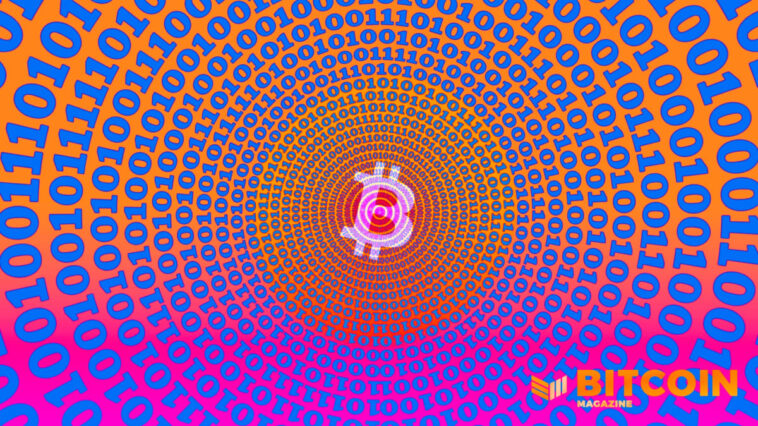There are certain aspects of Bitcoin that resemble a User-Generated Brand.
Just as the Apple brand is to tech, McDonald’s is to burgers, Nike is to sneakers and Coke is to cola, so is the Bitcoin brand to cryptocurrency.
“Whoa… hold the phone!” you say. “Bitcoin isn’t a brand. It’s a currency. Currencies aren’t brands!”
Well, that’s a traditional way of looking at it. And Bitcoin is anything but traditional.
Think of it this way: blockchain is a technology. Coins are an asset on the blockchain. Bitcoin is a brand that brings its unique selling proposition to blockchain.
To be clear, Bitcoin is not an ordinary brand. It’s what I call a User-Generated Brand (UGB). Because Bitcoin lacks a centralized brand owner or chief marketing officer, it is molded by a large ecosystem of foundation members, technologists, investors, miners, commentators, thought leaders, innovators, journalists and more. Nevertheless, as a UGB, the cumulative effect of its brand assets stand for something.
Still skeptical? Consider this:
- Bitcoin has a story centered around a movement to right the wrongs of centralized finance. And it has a founder who embarked on a hero’s journey to solve for it (more on that in a moment).
- It has cult-like brand qualities. After all, when was the last time you saw someone wearing a t-shirt with a dollar or euro symbol on it? Or see 12,000 people descend on a city like Miami to spend days doing nothing but talking about a currency’s evolution and future.
- It has an identity. The “₿” iconography is as ubiquitous nowadays as a thumbs-up emoji.
- It is synonymous with the category. People sneeze into Kleenex, not “facial tissues.” In prior decades we “Xeroxed” pages to make copies. Ask an outsider to name a cryptocurrency and they’ll say, “Bitcoin.”
- It has a premier marketplace position. Being a first-mover and dominant player bestows significant competitive advantages — not the least of which is high awareness and brand loyalty, leading to powerful network effects.
- It has a unique selling proposition. Notably, a limited supply of coins, which thus increases its appeal as a hedge against inflation while creating a new form of property.
Moreover, what makes the Bitcoin brand so intriguing are some other less cut-and-dry factors:
- Its founder is pseudonymous and disappeared without a trace years ago. I’d argue that the mystery of Satoshi Nakamoto just adds fuel to the narrative and mystique. As we in advertising like to say: when people are talking about our brand, that’s a very good thing.
- On any given day you can find one so-called expert predicting that the price of bitcoin will reach $300,000 by the end of the year and another forewarning a dip under $20,000. Aside from its obvious interest to investors, ongoing debates like this only fuel the fire of brand engagement from both the pros and newbies alike. Such divergent views get people talking and — you know the drill — when people are talking about our brand, it’s a very good thing.
Okay, so you’re onboard: Bitcoin is a brand. A User-Generated Brand. Next question you may be asking is: so what? Consider these:
The Contract — A great brand, at the end of the day, is a promise (a “contract”) that the sum total of it what it stands for and how it behaves will provide confidence and comfort that if you put your faith in it (by purchasing, investing, advocating, etc.), you’ll be rewarded. For all the reasons stated above, Bitcoin is in an enviable pole position, particularly as it relates to wooing institutional investors and their allocation committees who, once fully bought in, would represent a true tipping point in the race to bitcoin adoption. To propel this forward, as a UGB, it is incumbent on the community’s most vocal believers to not just talk amongst themselves (as they are apt to do) but to the masses in ways that will elucidate that promise to them.
The Community — A great brand feeds off the passion of its most active users. In fact, passion is the fuel that ignites any brand’s fire. So while Bitcoin, as a UGB, may not have a chief marketing officer, it does have an army of de facto marketing officers (many of whom read this magazine). Collectively, they believe that Bitcoin and its underlying technology is a true force for good in democratizing finance and have many forums for sharing that point of view. For them, it’s important to spread the word: Bitcoin’s primary purpose is not about making money, it’s about making a change. And, as with any movement, the rubber meets the road when its story can be told in calm and simple terms, using analogies that everyone understands.
The Coattails Versus The Contrarian — Project founders, foundations and decentralized autonomous organizations of every size and shape have a decision to make: regardless of their technical or functional relationship, do they ride Bitcoin’s coattails or cast it off as a fine but flawed product that is ripe for disruption? It will vary from case to case for sure, but contrarians should be forewarned: brands with the community, contract, passion and purpose that Bitcoin has are formidable. While a small group of insurgents may rejoice at the thought of dethroning the king, most of these contrarians’ efforts will be rejected entirely by the Bitcoin community, as proven by previous hard forks.
The Conventional Wisdom — Dominant brands are typically expected to act in conventional ways. In fact, it can be argued, it is the shackles of category conventions that box them in, allowing challengers to erode or overtake their position. So is Bitcoin a conventional player in an unconventional category? Hardly. Conventional behaviors come with time and a sense of dominance that is considered an impenetrable moat. This leads to a risk-averse, defensive posture and possible stagnation. But Bitcoin is still in its infancy and is at the center of a tsunami of innovation. To the UGB community that is pushing boundaries and challenging the status quo I say, “Rock on!”
To summarize: to some, the very thought of traditional, centralized marketing in the Bitcoin space is antithetical to the category. As with any radical change in conventions and norms, this is to be understood. But, even as a User-Generated Brand, the marketing of Bitcoin most certainly is influential in ways that will certainly evolve over time. As advertising veteran Regis McKenna famously said, “marketing is everything, and everything is marketing.”
Today, while metrics such as Reddit subscribers, social comments per hour, Twitter followers, website traffic and community size dominate the discussion of brand health (and are closely watched by investors), there will certainly be other, perhaps more influential metrics, as the roles, bullhorns and motivations of key voices — decentralized and centralized — in the ecosystem evolve.
As it does, you can be sure that Bitcoin will be at the forefront of this evolution. Because if it looks like a brand, acts like a brand and works like a brand, then it is a brand. That it’s a UGB simply means that you can’t expect the same rules that governed branding and marketing over the past 25 years to hold.
This is a guest post by Rich Feldman. Opinions expressed are entirely their own and do not necessarily reflect those of BTC Inc or Bitcoin Magazine.





 BTC-USD
BTC-USD  ETH-USD
ETH-USD  LTC-USD
LTC-USD  XRP-USD
XRP-USD